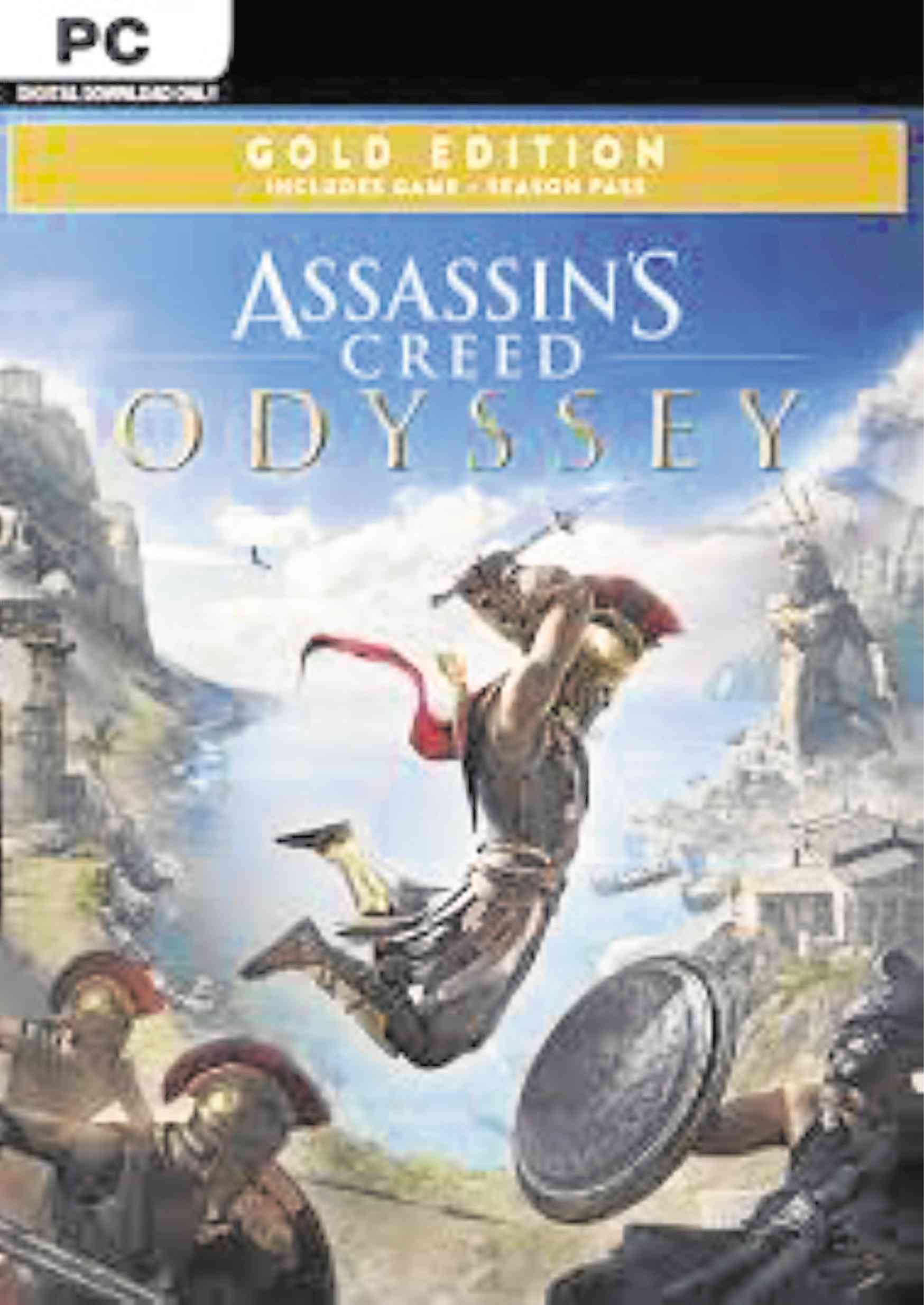There is currently a lot of downtime in my world. It gives me plenty of time to just rest and relax. This means I have more time for my family and friends—and lots of visits to some amazing restaurants.
But more often, it means sitting my butt in front of the TV, a game console controller in my hand, and lots of late nights into early mornings with a new video game. And right now, the game of choice is Assassin’s Creed: Odyssey.
The game was officially released in early October, but I didn’t get started until a few weeks after, due to another game keeping me occupied (not to mention LS40). However, once I did begin, as with previous Assassin’s Creed titles, it’s kept me captivated, and busy.
Odyssey is set in ancient Greece, where an all-out war between the Athenians and Spartans is taking place. You get to play the role of a mercenary also known as the Eagle Bearer, Alexios (a man) or Kassandra (a woman).
There is the main story (our hero is the grandchild of the legendary Spartan king Leonidas) where Alexios/Kassandra and the rest of his/her family members are hunted down by a cult because of their inherent power.
The main quests branch out and eventually meet up again, which gives the player plenty of freedom with which to accomplish their listed tasks, as well as side quests from all over the Greek map (name a Greek island; it’s most likely here) for powering up stats and armor, gathering resources, and raising one’s playing level.
In a departure from Assassin’s Creed’s previous gameplay, Odyssey takes things up a notch by offering to the player numerous choices for his or her actions. You can take diplomatic routes to conversations, or just out and out kill whomever you’re talking to.
You can choose to believe a client asking for help, or say no—to interesting results. And based on the choices you make throughout this game, you can get one of nine different endings.
Oh my goodness, how many times will I have to play to see all of them? (Answer: not many; all those endings are available on YouTube.)
You’ll also get to meet a few historical figures over the course of your journey, such as Sokrates, Herodotos, Hippokrates, Pythagoras and Aristophanes. Artists, playwrights, mathematicians, politicians and philosophers are all part of your personal odyssey, as well as soldiers, warriors and criminals.
This game is also interesting due to its—and don’t laugh—romance options. Despite the choice of gender for the main character, the romantic scenarios don’t change.
Which means that if you’re playing as Alexios, you’ll be presented with a possible romance with a man, as well as a woman (and vice versa with Kassandra).
However, if you’re of a more conservative nature, you can completely ignore every romance as it comes (there’s a small heart icon before the specific option to let you know the choice is available).
The map of this depiction of ancient Greece in this open world is huge. All-encompassing. Massive. It truly is expansive, with each island or islet with its own set of quests and missions, and characters in need, which means plenty of opportunities for leveling up and finding secrets. However, it can also mean tedium, and the repetitive nature of leveling up one’s character can be boring.
There are also a lot of naval battles due to the geography of this part of the world, as you’ll oftentimes need a ship to travel from Kephallonia to Athens, for example.
You’ll find yourself in battle with an enemy ship, from which you can gain precious weapons and armor. You can also upgrade your ship with wood and metal acquired from your missions, as well as with soldiers you recruit during your travels (you have to knock them out to make that happen).
Graphics are gorgeous (it’s incentive to visit all the game’s synchronization points for the breathtaking views), and the game’s photo mode allows you to capture them. Sunrises and sunsets, as well as the night sky are my particular favorites. There are actual historical locations to visit, portrayed in their full, newly constructed glory.
As far as gameplay goes, whatever buttons were assigned to actions in previous Assassin’s Creed titles are the same, which should make for an easy transition if you’re a fan of Origins.
You can specialize in a particular skill, whether as an assassin (silent and deadly), a warrior (melee is the specialty) or a hunter (archery is your skill).
I tend to choose skills for a jack-of-all-trade fighting style, and by the time I’m done, I’d have gained every single skill for my own brand of warfare and leveled up to something crazy.
If I have one complaint, it’s that the game tends to occasionally crash. It’s not that big of a deal, unless of course it happens just as the game is saving right after I’ve vanquished a particularly difficult enemy.
All in all, this is another wonderful addition to Assassin’s Creed, a title that succeeds at offering a player an escape into the ancient world.
History buffs shouldn’t take this too seriously (remember, it’s still a work of fiction despite its factual setting), but instead allow one’s imagination to wonder just what it must’ve been like during the Peloponnesian War, and the way of life of those caught in the middle, in order to survive. It portrays war as profitable, and certain citizens expendable.
How interesting.
